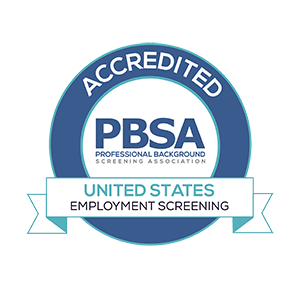3 Due Diligence Steps You Don’t Want To Forget
When you’re applying for a new position, you likely expect that the hiring company will perform a background check. What you might not expect, however, is the very real possibility that they request to conduct a credit check too. Over the past few years, employers have increasingly begun to use credit checks as part of their pre-employment screening process.
What can a credit check tell an employer about a potential hire? Many companies that use credit checks as part of their screening process feel that they help to gauge just how responsible a candidate is. They also let the employer know whether or not the potential hire is financially stable. However, does information in a credit report truly reflect a candidate’s ability to perform effectively at work? Many would agree that the answer to that question is a resounding no– thus resulting in a new trend by states to limit use of credit reports in employment screening.
In 2012, a study conducted by the Society for Human Resource Management found that half of all employers used credit checks as part of their hiring process. This practice was found to be true regardless of position type, meaning that the company file clerk was just as likely to be subjected to a pre-employment credit check as the senior manager. According to Nancy Zirkin, executive vice president of The Leadership Conference on Civil and Human Rights:
“The use of credit checks creates a Catch 22 for job seekers. It traps unemployed workers who have fallen behind on their bills in a vicious cycle of debt.”
It seems that states are beginning to agree with Ms. Zirkin’s sentiment. California, Colorado, Connecticut, Hawaii, Illinois, Maryland, Oregon, Vermont, Nevada, Washington, and the city of Chicago have all passed laws banning employers from running pre-employment credit checks on potential hires. Other states are considering bills which would limit an employer’s ability to use credit reports to make hiring decisions. It’s worth noting, though, that all of the laws that have been enacted contain some exemptions– primarily for financial institutions and law enforcement agencies.
To learn more about the growing trend of limiting use of credit reports in the employment screening process, please contact us.


Leave a Reply
Want to join the discussion?Feel free to contribute!